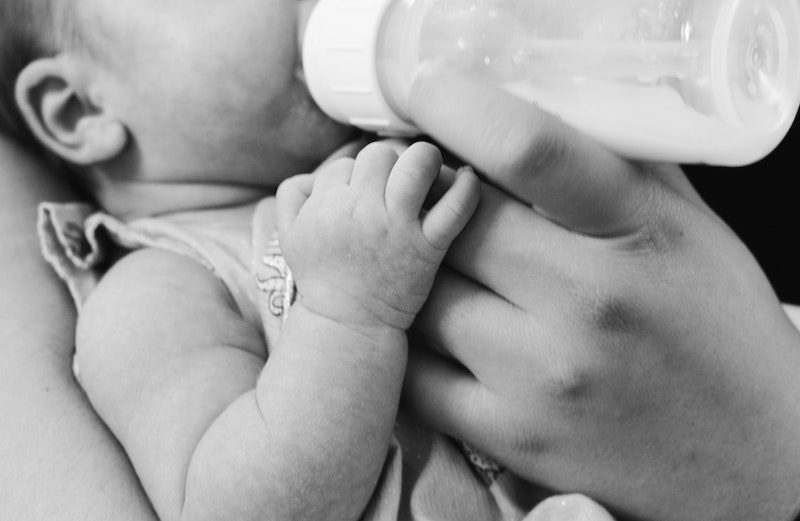Seeking Clearness on Childbearing in a Crowded World

This article was created by QEW’s Population Working Group and is part of our “Pamphlets for Sharing” series, reflections on important topics researched, written, and edited using Quaker discernment and decision-making. We hope you use them as an educational tool with your community. Download the PDF or order print copies by emailing info@quakerearthcare.org.
We as Friends seek Divine guidance in all realms of our lives. Couples seek clearness on their calling to spend the rest of their lives together. So too, having a child is a life-changing commitment that merits deep spiritual reflection, not only in regard to the personal sacrifices and rewards included, but also in regard to the larger issues of the society and environment. In the manner of Friends, bringing this reflection to a clearness committee can help in decision-making.
THE SETTING
The world population is growing by more than 80 million persons a year. It reached seven billion by 2011, more than double the three billion counted only half a century ago in 1960. On a finite planet, this rapid population growth threatens the survival of humans and other species. With the current average lifestyle and population in the world, it would take more than one planet to support us sustainably—but we have only one. Worldwide, in order for population to stop growing by 2050, couples must have on average fewer than two children because there are very large numbers of children under age 15 who will become of reproductive age soon. Even if they have only two children per couple, the population will continue to grow for many decades.
Globally, over 40 percent of pregnancies are unintended and many of those are unwanted. If only wanted pregnancies occurred, the world fertility rate would decline substantially. As Friends, we can go beyond the idea of wanted births to the concept of parenthood as a calling. In worship-sharing with Friends on this concern, one Friend offered the following: “How beautiful it would be if every birth represented a calling on the part of the parents.”
SOCIAL AND ECONOMIC PRESSURE IN REGARD TO REPRODUCTION
Traditionally, bearing and mothering a child were essential parts of a woman’s identity, and couples with few or no children were pitied. A woman’s status in some cultures has been measured by her ability to bear children, and infertility was a basis for a man to divorce his wife. In traditional agricultural societies, a woman’s status increased with the number of children she bore; more children meant more hands to work in the fields or carry water. This cultural attitude is changing now as countries rapidly become urbanized, so there is less need for farm labor. Additionally, the costs of feeding, clothing, and educating children in the city are substantial.
In developed countries there is a tendency to believe that couples independently decide whether to have children and how many to have. But such decisions are always made within a larger social context, and typically there are considerable pressures. There may be subtle or not so subtle pressure from one’s aging parents who would like to become grandparents, or from peers who are having children.
Also many people believe that children without siblings are “spoiled,” although studies show the contrary. Those who choose not to have children are often regarded as selfish. But in our overpopulated world, deciding not to have children could be seen as an unselfish act. In this context, how does one discern whether the desire to have children is a calling or more a result of social pressures and expectations?
Lifestyle is another factor that can influence a couple’s decision to have children. Friends’ values regarding simplicity and consumption are relevant. Couples who realize that every person, from babyhood onward, adds environmental stress to the earth, may decide not to have any children. This is especially so in developed countries, where each individual typically uses six to ten times more resources than a person in a less developed country.
CLEARNESS
A clearness committee can help a couple balance their desire for children and their concern for the effects of an additional birth on the preservation of the earth. Chesapeake Quarterly Meeting of Baltimore Yearly Meeting, for instance, stated in a Minute (approved in 6th month of 1992):
“….Meetings should make known the availability of clearness committees for couples who are considering additions to their family and want support in making a responsible decision…..”
A clearness committee can raise many issues concerning childbearing. For instance, couples who have two children, and no more, are only reproducing themselves, not increasing the next generation. Couples who choose to have only one birth are helping to slow population growth. Adoption is a positive option for the sake of the earth, especially for couples who are called to have and care for larger families.
Quaker families committed to reducing their material consumption can still give their children the really important things in life: love, companionship, a sense of wonder, the chance to be creative, the joy of learning, sharing, forgiving, play, a chance to grow, an appreciation of nature, and a spiritual base. These traditional Friends’ values are all available with no adverse impact on the earth.
Children in one-child families need not be lonely or isolated; with a support group of parents, grandparents and other Friends and their families, children can have an extended network of “siblings.” Friends who choose not to have children can play important roles in the lives of children in the Meeting, aiding the Meeting in its undertaking to care for children of its members.
QUERIES FOR FRIENDS CONSIDERING CHILDBEARING
(FOR BOTH COUPLES AND INDIVIDUALS)
- Have you considered your attitudes toward childbearing and what social pressures affect your choice to have a child or not?
- Have you explored your attitudes about contraception and other aspects of family planning?
- How do you feel about adoption?
- Have you considered the availability of family and/or community support?
- Have you considered your attitudes about the sharing of family responsibilities and how to add parenting to your other roles?
- Do you have time and financial resources to make a full-time commitment to child-rearing?
- Do you feel adequately prepared to be responsible parents?
- How does your faith influence your decision regarding childbearing?
- Have you considered your family’s use of natural resources?
- Are you aware of the disproportionate ecological impact on the earth that each child from a developed country makes?
- Have you considered possible conflicts between a calling to bear and care for a child and a calling to care for the earth and all its creatures?
Living for a time with these queries can help to insure that your choice is a calling of the Spirit.
RESOURCES
Child Free by Choice <childfree.net>
Engleman, Robert. 2010. More: Population, Nature, and What Women Want. Washington, D.C.: Island Press.
McKibben, Bill. 1999. Maybe One: A Personal and Evironmental Argument for Single Child Families. New York: Simon & Schuster.


